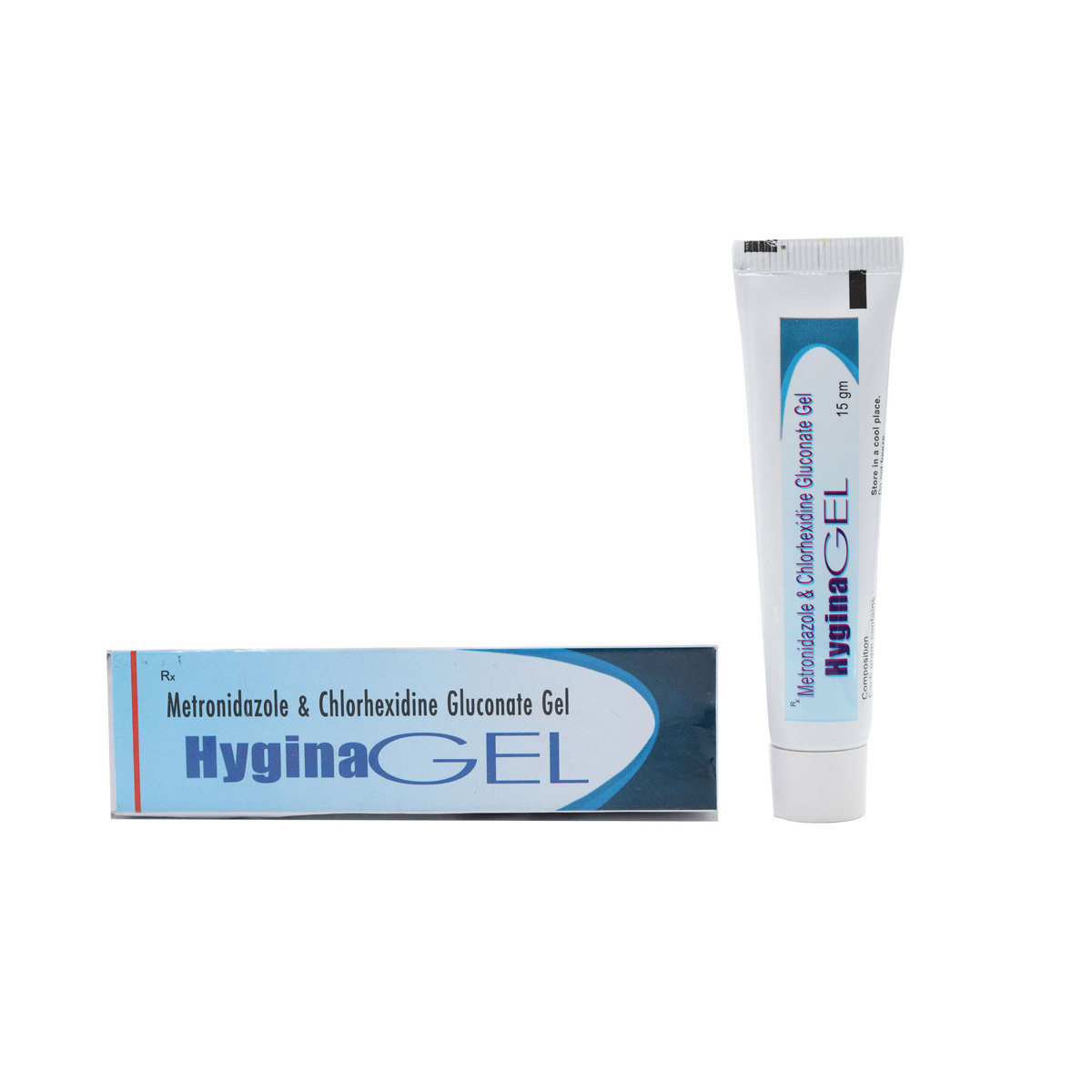Metronidazole+chlorhexidine Gluconate
About Metronidazole+chlorhexidine Gluconate
Metronidazole+chlorhexidine Gluconate is used to treat gum inflammation (gingivitis) and mouth ulcers. Gingivitis is the inflammation of gum caused by bacteria; if left untreated it can lead to periodontitis (gum infection that damages gums and can destroy the jawbone). This can cause the gum to separate from teeth leading to loss of teeth.
Metronidazole+chlorhexidine Gluconate contains Metronidazole and Chlorhexidine Gluconate. Metronidazole+chlorhexidine Gluconate inhibits the growth of bacteria and helps in the healing of ulcers. It exerts anti-microbial action on the infection causing micro-organisms. Thereby treats gum inflammation.
In some cases, Metronidazole+chlorhexidine Gluconate may cause burning sensation, irritation, dry mouth, metallic taste, and staining of teeth. Most of these side effects do not require medical attention and gradually resolve over time. However, consult your doctor if the side effects persist or worsen.
Do not use Metronidazole+chlorhexidine Gluconate if you are allergic or hypersensitive to any of its ingredients. Consult your doctor if you are pregnant or breastfeeding. Maintain good oral hygiene and brush at least two times a day to avoid oral infection. Do not swallow Metronidazole+chlorhexidine Gluconate. It is for external use only.
Uses of Metronidazole+chlorhexidine Gluconate
Medicinal Benefits
Metronidazole+chlorhexidine Gluconate contains Metronidazole and Chlorhexidine Gluconate. Metronidazole+chlorhexidine Gluconate is used to treat gum inflammation (gingivitis) and mouth ulcers. Metronidazole+chlorhexidine Gluconate inhibits the growth of bacteria and helps in the healing of ulcers. It exerts anti-microbial action on the infection causing micro-organisms. Thereby treats gum inflammation.
Directions for Use
Storage
Side Effects of Metronidazole+chlorhexidine Gluconate
- Metallic taste
- Burning sensation
- Irritation
- Dry mouth
- Staining of teeth
Drug Warnings
Do not use Metronidazole+chlorhexidine Gluconate if you are allergic or hypersensitive to any of its ingredients. Consult your doctor if you are pregnant or breastfeeding. Do not swallow Metronidazole+chlorhexidine Gluconate. It is for external use only. Use Metronidazole+chlorhexidine Gluconate in the dose and duration advised by the doctor. Avoid using Metronidazole+chlorhexidine Gluconate for a prolonged duration as it may cause teeth-staining.
Drug Interactions
Drug-Drug Interactions: Metronidazole+chlorhexidine Gluconate may have interactions with certain medicines used to treat HIV (amprenavir)
Drug-Food Interactions: No interaction found.
Drug-Disease Interactions: No interaction found.
Drug-Drug Interactions Checker List:
Safety Advice

Alcohol
cautionIt is not known whether Metronidazole+chlorhexidine Gluconate interacts with alcohol. Please consult your doctor if you have any concerns.

Pregnancy
cautionPlease consult your doctor if you have any concerns regarding this, your doctor will prescribe only if the benefits outweigh the risks.

Breast Feeding
cautionPlease consult your doctor if you have any concerns regarding this, your doctor will decide whether Metronidazole+chlorhexidine Gluconate can be used by breastfeeding mothers or not.

Driving
safe if prescribedMetronidazole+chlorhexidine Gluconate does not impact the ability to drive or operate machinery.

Liver
cautionPlease consult your doctor if you have any concerns regarding the usage of Metronidazole+chlorhexidine Gluconate in patients with liver impairment.

Kidney
cautionPlease consult your doctor if you have any concerns regarding the usage of Metronidazole+chlorhexidine Gluconate in patients with kidney impairment.

Children
cautionLimited information is available. Please consult your doctor if you have any concerns regarding the usage of Metronidazole+chlorhexidine Gluconate in children.
Habit Forming
Diet & Lifestyle Advise
- A diet low in carbohydrates and rich in Omega-3 fatty acids, vitamin C, D, and fibres can significantly reduce gingival and periodontal inflammation.
- Avoid eating foods that irritate mouth ulcers.
- Include whole grains and alkaline fruits and vegetables.
- Eat a healthy, well-balanced diet.
- Maintain good dental hygiene by brushing after meals and regular flossing.
Special Advise
- Avoid contact of Metronidazole+chlorhexidine Gluconate with eyes. If contact occurs, rinse with water immediately.
Patients Concern
Disease/Condition Glossary
Gingivitis: Gingivitis is periodontal or gum disease with swollen and bleeding gums, which can be caused due to various bacteria; if left untreated can lead to periodontitis and eventually loss of teeth. Its signs and symptoms include bleeding from gums, swollen gums, a loose tooth and sometimes foul oral smell.
Mouth ulcers: Mouth ulcers, also known as canker sores are small, painful lesions that develop in the mouth or at the base of gums. These can make you uncomfortable while eating, drinking, and talking. Mouth ulcers usually heal within a few weeks and are not contagious. People with a family history of canker sores are at more risk of developing mouth ulcers. Minor mouth injury from dental work or hard brushing, acidic foods, lack of essential vitamins, dental braces, emotional stress, viral, bacterial or fungal infections could be a cause of developing mouth ulcers.
FAQs
Metronidazole+chlorhexidine Gluconate inhibits the growth of bacteria and helps in the healing of ulcers. It exerts anti-microbial action on the infection causing micro-organisms. Thereby treats gum inflammation.
To treat your condition effectually, continue using Metronidazole+chlorhexidine Gluconate for as long as it has been prescribed by the doctor. Talk to your doctor if you experience any difficulty while using Metronidazole+chlorhexidine Gluconate.
Metronidazole+chlorhexidine Gluconate may cause teeth staining if used for a prolonged time. Therefore, use Metronidazole+chlorhexidine Gluconate only in the dose and duration advised by the doctor.
The bitter taste is one of the side effects of Metronidazole+chlorhexidine Gluconate. However, if the condition persists or worsens, consult a doctor.






